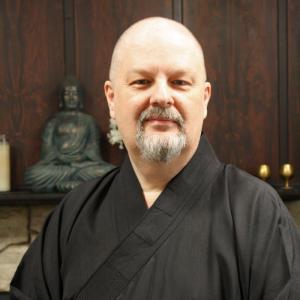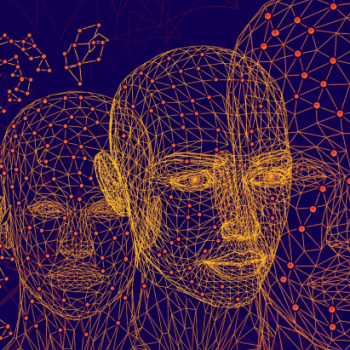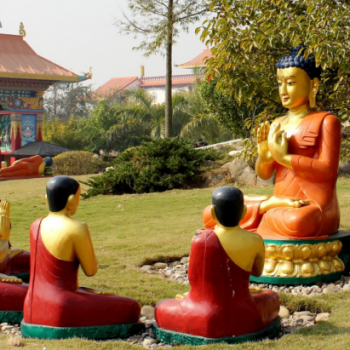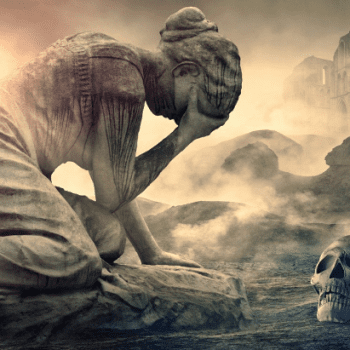
The Buddha said:
I understand the gods, and the path and way leading to the world of the gods. And I also understand how one who has entered this path will, on the dissolution of the body, after death, reappear in a happy destination, in the heavenly world (MN 12 Nanamoli).
Siddhartha Gotama (Sanskrit, Siddhartha Gautama), better known as the Buddha, was not an atheist. Not only did he believe in gods, but he was also a god before becoming a human. It is weird that anyone would teach that the Buddha was an atheist. It is just not true.
What is Atheism?
The Webster’s New World College Dictionary (5th ed.) says that atheism is “the belief that there is no God, or denial that God or gods exist.” And I think that most people understand atheism to mean this. But that is not correct. As the American Atheist website says, “To be clear: Atheism is not a disbelief in gods or a denial of gods; it is a lack of belief in gods.”
Michael Martin explains, “If you look up ‘atheism’ in a dictionary, you will find it defined as the belief that there is no God. Certainly, many people understand ‘atheism’ in this way. Yet this is not what the term means if one considers it from the point of view of its Greek roots. In Greek ‘a’ means ‘without’ or ‘not,’ and ‘theos’ means ‘god.’ From this standpoint an atheist is someone without a belief in God; he or she need not be someone who believes that God does not exist” (1).
And just to be clear, I define the word believe to mean, “to accept a claim as true, which then becomes a rule of action” (Forrest 674). Since, as the American Atheist website says, Atheism “is a lack of belief in gods,” it is fair to say that, an atheist is someone who does not accept the claim that gods exist. It would not matter what kind of gods are claimed to exist, an atheist doesn’t believe in any of them.
Five Destinations
It might be best to give some context to the Buddha’s view of the cosmos before going too much further. First, we have to understand that the Buddha divided reality into the conditioned and the unconditioned.
The Buddha said:
There is, monks, an unborn, unbecome, unmade, unconditioned. If, monks there were not that unborn, unbecome, unmade, unconditioned, you could not know an escape here from the born, become, made, and conditioned. But because there is an unborn, unbecome, unmade, unconditioned, therefore you do know an escape from the born, become, made, and conditioned (Ud 8.3 Anandajoti).
Notice the clear distinction between the “conditioned” and the “unconditioned.” It is clear from the context that the “unconditioned” is referring to nirvana. But nirvana is almost always described in negative language, expressing what it is not rather than what it is. This is because the language of “the born, become, made, and conditioned” cannot express nirvana.
The Buddha called the conditioned samsara. He said, “Bhikkhus, this samsara is without discoverable beginning. A first point is not discerned of beings roaming and wandering on hindered by ignorance and fettered by craving” (SN 15.1). So reality is divided between samsara and nirvana. I defend calling nirvana a “reality” because the Buddha did say, “there is an… unconditioned” (Ud 8.3 Anandajoti). Reality is that which is.
But within samsara, there are five destinations. The Buddha said, “Sariputta, there are these five destinations. What are the five? Hell, the animal realm, the realm of ghosts, human beings and gods” (MN 12 Nanamoli). The realm of gods is heaven, and is called heaven elsewhere. The Buddha cannot be an atheist since he believed that “there are” human beings and “gods.”
A God Becomes Man
How can the Buddha be so sure that there are gods. On the night of his full awakening, he says that when he was deep in meditation he extended his mind “toward recollection of past lives. I recollected my many kinds of past lives, with features and details” (MN 36 Sujato).
Ananda, who is the main source for all the early suttas, said, “I have learned this in the presence of the Buddha: ‘Mindful and aware, the being intent on awakening passed away from the host of Joyful Gods and was conceived in his mother’s womb’” (MN 123 Sujato). Bhikkhu Nanamoli, in his book, The Life of the Buddha, translates this as the Buddha-to-be “passed away from the Heaven of the Contented and descended into his mother’s womb” (3). The Pali word for “Heaven of the Contented” is tusita.
“In Buddhist cosmology,” notes The Princeton Dictionary of Buddhism, it is “the fourth highest of the six heavens within the sensuous realm. This heaven is of particular importance to the Buddhist tradition because it is understood that the bodhisattvas are born here before taking their final birth in the human world and attaining buddhahood.”
Clearly the Buddha was not an atheist. He was a god who “passed away from the host of Joyful Gods and was conceived in his mother’s womb” (MN 123 Sujato). You can’t actually read the Pali canon and think the historical Buddha was an atheist.
The Teacher of Gods
The Buddhist scriptures declare:
That Blessed One is perfected, a fully awakened Buddha, accomplished in knowledge and conduct, holy, knower of the world, supreme guide for those who wish to train, teacher of gods and humans, awakened, blessed (MN 41 Sujato)
This phrase, “teacher of gods and humans,” is repeated numerous times in the Pali canon. No atheist would be a teacher of gods. You can’t deny the existence of “gods” and still be their teacher. But it goes further:
He has realized with his own insight this world—with its gods, Māras and Brahmās, this population with its ascetics and brahmins, gods and humans—and he makes it known to others. He proclaims a teaching that is good in the beginning, good in the middle, and good in the end, with the right meaning and phrasing. He reveals an entirely full and pure spiritual life. It’s good to see such perfected ones (MN 41 Sujato).
Notice that, the Buddha “realized with his own insight this world—with its gods, Maras and Brahmas.” Maras are demons and Brahmas are high Gods.
Now someone might object that this was said about the Buddha, but not by the Buddha. True, but the Buddha did say:
Sariputta, this misguided man Sunakkhatta will never infer of me according to Dhamma: ‘That Blessed One is accomplished, fully enlightened, perfect in true knowledge and conduct, sublime, knower of worlds, incomparable leader of persons to be tamed, teacher of gods and humans, enlightened, blessed’ (MN 12 Nanamoli).
The Buddha was the “teacher of gods and humans” by his own admission. Now you really can’t deny the existence of gods if the gods are your students. The fact is, the Buddha never denied the existence of gods. Not only did he affirm their existence, he said that he used to visit them in heaven.
The Buddha said:
Sariputta, there are these eight assemblies. What eight? The assemblies of aristocrats, brahmins, householders, and ascetics. An assembly of the gods under the Four Great Kings. An assembly of the gods under the Thirty-Three. An assembly of Māras. An assembly of Brahmās. These are the eight assemblies. Possessing these four kinds of self-assurance, the Realized One approaches and enters right into these eight assemblies. I recall having approached an assembly of hundreds of aristocrats. There I used to sit with them, converse, and engage in discussion (MN 12 Sujato).
Notice concerning the “assembly of the gods” that, according to the Buddha himself, “I used to sit with them, converse, and engage in discussion.” The Buddha was not an atheist.
A Buddhist Becomes a God
Many of the suttas begin with “the Buddha” staying “near Savatthi in Jeta’s Grove, Anathapindika’s monastery” (MN 3 Sujato). Anathapindika is the name of a wealthy lay follower of the Buddha. He gave a lot to the Buddha and his followers, and he was very devoted to the Buddha and his Dharma.
But what is interesting for us is that after he died he became a god. The Buddhist scriptures declare:
And when the venerables Sariputta and Ananda had given the householder Anathapindika this advice they got up from their seat and left. Not long after they had left, Anathapindika passed away and was reborn in the host of Joyful Gods. Then, late at night, the glorious god Anathapindika, lighting up the entire Jeta’s Grove, went up to the Buddha, bowed, stood to one side, and addressed the Buddha (MN 143 Sujato).
Notice that Anathapindika “passed away and was reborn in the host of Joyful Gods.” Then he is referred to after that as “the glorious god Anathapindika.” An important thing to note is that when you go to heaven you don’t go as a human, but are reborn as a god.
After “the glorious god Anathapindika” addressed the Buddha in verse, the Buddhist scriptures say:
This is what the god Anathapindika said, and the teacher approved. Then the god Anathapindika, knowing that the teacher approved, bowed and respectfully circled the Buddha, keeping him on his right, before vanishing right there. Then, when the night had passed, the Buddha told the mendicants all that had happened (MN 143 Sujato).
Please notice that this story was not made up but “the Buddha told the mendicants all that had happened.” The Buddha was a god, had conversations with the gods, and even had a lay disciple become a god. Let me ask you, how can anyone think that the Buddha was an atheist? How?
How to Go to Heaven
The Buddha will tell you how to go to heaven. The Buddha said, “I shall teach you rebirth by choice. Listen and pay close attention, I will speak” (MN 120 Sujato). You can choose your next rebirth.
The Buddha said:
Furthermore, take a mendicant who has faith, ethics, learning, generosity, and wisdom. And they’ve heard: ‘The Gods of the Thirty-Three … the Gods of Yama … the Joyful Gods … the Gods Who Love to Create … the Gods Who Control the Creations of Others are long-lived, beautiful, and very happy.’ They think: ‘If only, when my body breaks up, after death, I would be reborn in the company of the Gods Who Control the Creations of Others!’ They settle on that thought, stabilize it and develop it. Those choices and meditations of theirs, developed and cultivated like this, lead to rebirth there. This is the path and the practice that leads to rebirth there (MN 120 Sujato).
You want to go to heaven and become a god? The Buddha tells you how. “They settle on that thought, stabilize it and develop it. Those choices and meditations of theirs, developed and cultivated like this, lead to rebirth there” (MN 120 Sujato). If that is what you want, then the Buddha laid out the instructions. It takes godly “choices” and “meditations” that develop and cultivate goodness and lovingkindness.
But the Buddha believed there was something better than a temporary heaven, and that was nirvana, freedom from the endless cycle of rebirth. He said:
Furthermore, take a mendicant who has faith, ethics, learning, generosity, and wisdom. They think: ‘If only I might realize the undefiled freedom of heart and freedom by wisdom in this very life, and live having realized it with my own insight due to the ending of defilements.’ They realize the undefiled freedom of heart and freedom by wisdom in this very life. And they live having realized it with their own insight due to the ending of defilements. And, mendicants, that mendicant is not reborn anywhere (MN 120 Sujato).
The Buddha and the Devil
Before ending our discussion, I should point out that the Buddha not only believed in gods, he also believed in the devil.
The Buddha said:
When this was said, I told Mara the Evil One, ‘I know you, Evil One. Don’t assume, “He doesn’t know me.” You are Mara, Evil One. And Brahma, and Brahma’s assembly, and the attendants of Brahma’s assembly have all fallen into your hands. They have all fallen into your power. And you think, “This one, too, has come into my hands, has come under my control.” But, Evil One, I have neither come into your hands nor have I come under your control’ (MN 49 Thanissaro Bhikkhu).
Both Buddhism and Chriustianity believe in the existence of the devil. In Buddhism, there are actually many demons. The difference is that in Buddhism, demons don’t stay demons forever. They can be reborn as humans or in other realms. Nothing is permanent in this conditioned realm.
Buddha Was Not an Theist
The Buddha was not an atheist, but he was also not a theist. The Cambridge Companion to Atheism defines theism as the “belief in an omnipotent, omniscient, omnibenevolent, personal God who created the universe, takes an active interest in the world, and has given a special revelation to humans” (Martin xix).
For the Buddha, there were many gods, not one. For the Buddha was not monotheistic, but polytheistic. It should also be noted that the Buddha was not pantheistic. Daoism is pantheistic and influenced Zen Buddhism in this regard. But the Buddha was not a pantheist.
For the Buddha, the gods were not all-knowing, all-powerful, or eternal. The fact that the Buddha has to teach the gods, indicates that they are not all-knowing. The fact that they are subject to rebirth and karma, indicates that they are not all-powerful. And the fact that they pass away, indicates that they are not eternal. So the Buddha’s understanding of the gods is unlike other religions.
Gods Are Irrelevant
But even calling the Buddha a polytheist doesn’t fit. The gods were not the answer, for they were stuck in the same wheel of rebirth us humans are. The gods are, in one sense, irrelevant to our final liberation. The only way of salvation is through the Buddha, the Dharma, and the Sangha.
The Buddha was not an atheist. I suppose it might bug some materialists, physicalists, and naturalists that the Buddha does not agree with them. Sure, the Buddha could be wrong, but so could the materialists, physicalists, and naturalists. But to say the Buddha taught something or believed something that is clearly not true, is ignorant at best and malicious at worst.
The only option left for devout secularists is to deny that the Buddha actually taught these things. That they were added later by devout monks. But if we can’t trust the Early Buddhist Texts, then we are lost. If the Early Buddhist Texts don’t represent the Buddha’s teachings, then his teachings are lost. But even then you can’t say the Buddha was an atheist, for you have nothing left to go on. You are basing it on nothing more than personal prejudice.
I am confident that the Early Buddhist Texts represent the Buddha’s original teaching. They are not perfect, but together they are clear. We know what the Buddha believed and taught. And we can decide if we want to follow him or not. But we don’t have the right to make stuff up.
Works Cited
References for Translations can be found on the Translations Used page.
- American Atheists. “What is Atheism?” Atheists.org. n.d. Web. 26 Aug. 2020.
- Forrest, Jay N. Secular Spirituality: Secular Buddhism, Atheistic Humanism, Spiritual Naturalism, and Bodhidaoism. Albuquerque, NM: Spiritual Naturalist Press, 2019.
- Martin, Michael. The Cambridge Companion to Atheism. New York: Cambridge University Press, 2007.
- Nanamoli, Bhikkhu. The Life of the Buddha: According to the Pali Canon. Onalaska, WA: BPS Pariyatti Editions, 1992.
- Princeton Dictionary of Buddhism, The. “Tusita.” Robert E. Busswell, Jr. and Donald S. Lopez J. eds. Princeton, NJ: Princeton University Press, 2014. Print.
Copyright © 2020 Jay N. Forrest. All Rights Reversed.
Image by S. Hermann F. Richter via Pixabay













